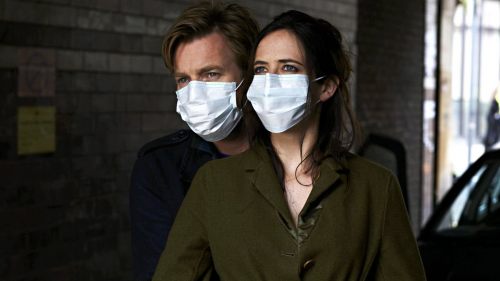Movie Review: THE IMPOSSIBLE Is Deplorable
The Impossible is a terrible movie even before you realize it’s a film that places the suffering of white people far, far above the suffering of brown people. But the fact that this is a movie set in Thailand during the 2004 tsunami that has no time for Thai people only makes the badness that much worse.
Juan Antonio Bayona has directed an exceptionally well-made film. The craft on display is high-level, and every bit of it is focused on crass, cheap tugging of heart strings. The Impossible is a film that batters you about the head with beautiful images, immersive sound design and Oscar-level caterwauling from the actors, relentlessly attempting to get an emotional reaction out of you. I’m shocked at the film’s restraint in not adding a dog to the story just so it could get emotionally, tearfully drowned by the big wave.
The big wave, which happens fairly early in the film, is the most interesting thing about the movie. It hits like something out of a Roland Emmerich film, a great big wall of CGI death, and I found myself wondering if this is what it really was like. I guess it was - The Impossible is, ostensibly, based on a true story - but the tsunami sequence plays like such a mannered bit of FX spectacle that it rang endlessly false. It’s still impressive, in an FX porn kind of way, one of those sequences that people will say is Spielbergian despite it having none of the master’s emotional undercurrents.
The true story at the heart of the film is about a very wealthy family (but don’t worry, dad might be losing his high paying job, so we can understand them. If he does, mom will have to go back to her menial work as a physician) who spend Christmas at a bourgeois beach resort in Thailand. The kind of place where the closest you get to local flavor are the Thai servants. These are people who travel to another country without a shred of intellectual curiosity, who just want to fuck about on the beach. They’re really salt of the earth types.
Ewan McGregor is the dad, and Naomi Watts is the mom. They have three kids, one of whom is mean to his brother, so you know he’s going to probably learn some very valuable lesson. He’s the only one - nobody else has much of anything else to learn, and they certainly have no interest in connecting with or helping anybody else out. Basically this is a movie about how 280,000 people died so one white kid could learn to be less of a snot.
When the wave hits the parents are separated. Mom is swept away with the snotty son, while dad is left back at the resort. The two halves of the family don’t know the other survived, and they must make their way through the post-apocalyptic terrain of Thailand to find each other. Along the way they encounter many white tourists and very, very few Thai people. One of whom is an aboriginal medicine man or something, which likely reflects the totality of Thai culture, right?
I want to try a thought experiment here. Imagine if a Thai company made a movie about 9/11, and that movie was specifically about the experiences of a Thai family in Tower One. Don’t worry, it’s not a bummer - it’s an uplifting story of how these people escaped death and got home safely. But imagine that, in this Thai movie, every character is Thai. There are white people running around in the background, and two of them have a couple of lines, but every single character in this story about the attack on the World Trade Center is Thai.
You’d think this was pretty weird, I bet. You’d think it displayed provincial thinking, perhaps even a cinematic xenophobia. You’d probably even laugh at how petty and small-minded this film seems. You’d dismiss it.
Turn it around (and multiply the death toll of the event by almost 100) and you have The Impossible. While I understand that white tourists would end up congregating with other white tourists after a disaster like this, the fact that the movie relegates all Thai people to background players is baffling. There are three Thai people with lines in the film: the aforementioned medicine man, who speaks only in un-subtitled Thai, a concierge at the resort (whose fate is unknown, uncared about) and a nurse at the hospital where mom, with a nasty, nasty leg wound, ends up. Maybe there’s a fourth, a guy who drives a truck, but I can’t remember if he actually has a line or just mimes looking at his watch to indicate he’s in a hurry.
“Wait,” you argue. “This is based on a true story. Maybe in the true story these people really had no contact whatsoever with Thai locals.” Maybe, but it’s worth noting that the real family is Spanish, a swarthy bunch who look nothing like the milk pale, fair-haired McGregor and Watts. If we’re taking liberties, let’s take a couple more - like the few liberties needed to humanize the Thai people who were devastated by the tsunami. By the end of The Impossible I was actually laughing at how assiduously the film kept Thai people backgrounded in every single scene; they’re always there, but as a faceless refugee mass. They are often literally obstacles the white characters must run around.
Like I said, even without the shades of imperialism, The Impossible is a bad movie. It’s a film where the main characters become heroic simply by not dying. They don’t do anything particularly interesting, and they certainly don’t do a single damn thing to help another person (there’s a short sequence where Snotty Kid decides to do some good in the hospital, so he runs around trying to help white people (and one Asian lady) find their lost loved ones. That’s short lived, though). It’s almost comical: at one point mom and Snotty Son find a lost (white) baby, briefly help him out and - I swear to God - forget to bring him with them when they head to the hospital. It’s like a comedy.
The titular impossibility is the fact that these people all found each other after the disaster; there’s a big sequence of coincidences that leads to them being reunited. Spoiler, I guess. Anyway, it isn’t like they wouldn’t have been reunited no matter what - they all survived, they were all okay and eventually they would have gotten phone service to call home and get situated. I’m not a religious guy, but the movie needs God to work; only if the film intimates that a higher power brought them together does this story take on any meaning deeper than being an interesting anecdote.
The Impossible is an agonizing experience for anyone who refuses to have their emotions shamelessly fumbled with, like a drunk crudely groping his partner on the dance floor. This is a movie that deplorably milks human tragedy for awards season buzz. It’s a film that takes the horrors visited upon millions as an excuse to tell the sad tale of a family who lost all their luggage.



